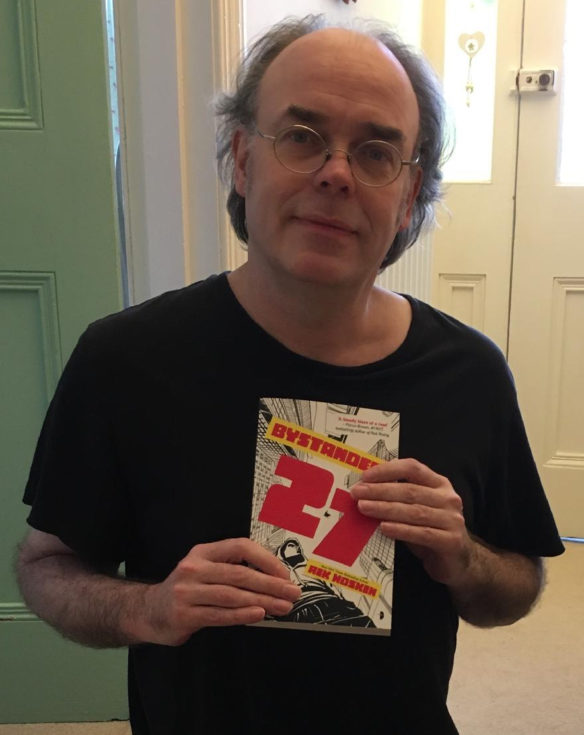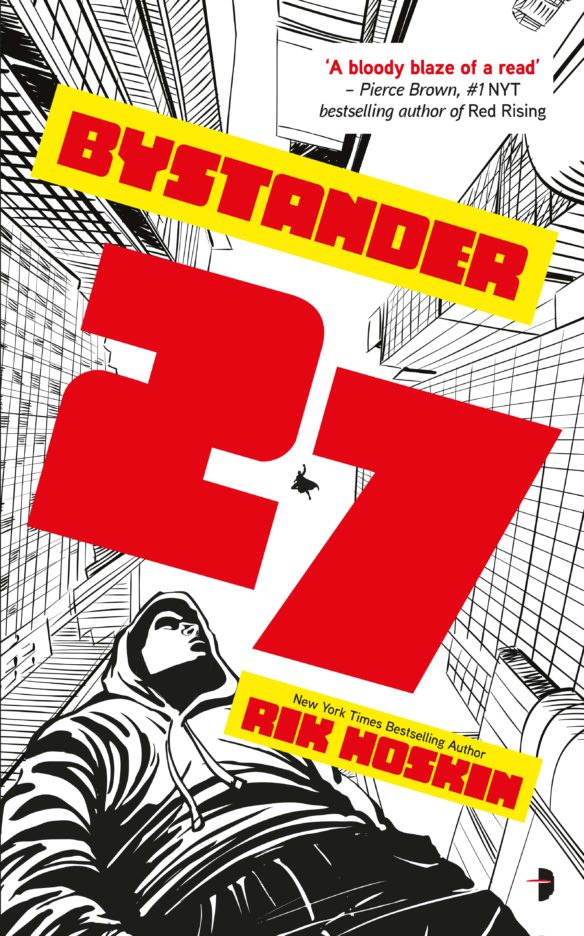
Rik Hoskin has worked on graphic novels and comics with best-selling authors and many top franchises including Star Wars and Doctor Who. The authors that Rik has collaborated with include Brandon Sanderson, Dean Koontz, Pierce Brown, and Patricia Briggs. Most recently, the graphic novel of Brandon Sanderson’s White Sand Volume 1 , which Rik collaborated on with Brandon Sanderson and Julius M. Gopez, won the Dragon Award for Best Graphic Novel at last year’s Dragon Con. Rik lives in the UK.
By Rik Hoskin: When I was invited to write a guest column for File 770, I was drawn to the fact that this website still proudly recalls its fanzine roots.
I began my writing career working on my own fanzine, and it taught me a lot. In my case, it was a comic book fanzine, written and initially drawn by me, later incorporating other like-minded creative individuals and artists with more prowess than me. My ’zine – photocopied and stapled before being mailed out each month to a keen list of paying subscribers – taught me a lot about writing. It set me on a career path that’s seen me write for properties like Star Wars, Superman, Doctor Who and Shrek, as well as writing novels, graphic novels and video games, and also winning a Dragon Award and appearing on the New York Times bestseller list. And that all began with a ballpoint pen, a photocopier and a hard-won list of subscribers.
One of the trickiest things for a would-be writer (hopeful, amateur, up-and-comer – call it what you will) is getting feedback. I still try to give feedback and guidance to would-be writers who are just finding their way, but with fanzines you get feedback. You put your work out there for show, and it lands in front of people who are passionate enough to part with money for photocopied pages about characters no one else knows about, frequently based on nothing more than a classified ad in a trade paper. That sounds almost unbelievable to me now.
In my experience, some readers would say “I loved it” and a few might even say “I hated it”, but the most telling feedback was from people who saw something else in the stories to what I’d intended; who had looked deep into the words, who had sometimes misunderstood, or maybe just understood better than I did, what it was I was doing. That taught me that making a story clear and getting it across to the reader is as important as the story itself.
How people read stories is as much a part of them as what the author puts on the page. We all bring our own experiences, our own reference points, our own what-they-call “head cannon” to the words we read. As such, a work of fiction might not just be one fiction, but a whole muddle of different fictions all spawned by those same words.
This is the territory I was thinking about when I wrote my latest novel, Bystander 27, which plays with the conventions of a certain section of fiction I’m very familiar with. In it we follow Jon Hayes, an ex-Navy SEAL who’s an ordinary guy in a world of costumed superheroes. After the death of his wife, Jon begins to look into what these stories all mean, and how the superheroes he sees every day on the streets of New York fit with the world he’s known in the Navy. I hope you’ll come join Jon as he searches for answers.

